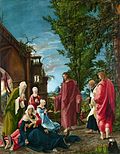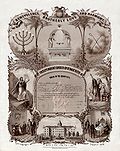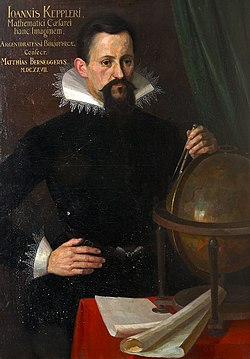Portal:Religion
The Religion Portal
Religion is a range of social-cultural systems, including designated behaviors and practices, morals, beliefs, worldviews, texts, sanctified places, prophecies, ethics, or organizations, that generally relate humanity to supernatural, transcendental, and spiritual elements—although there is no scholarly consensus over what precisely constitutes a religion. It is an essentially contested concept. Different religions may or may not contain various elements ranging from the divine, sacredness, faith, and a supernatural being or beings. (Full article...)
 Vital article
Vital article

The Bible is a collection of religious texts and scriptures that are held to be sacred in Christianity, and partly in Judaism, Samaritanism, Islam, the Baháʼí Faith, and other Abrahamic religions. The Bible is an anthology (a compilation of texts of a variety of forms) originally written in Hebrew, Aramaic, and Koine Greek. The texts include instructions, stories, poetry, prophecies, and other genres. The collection of materials accepted as part of the Bible by a particular religious tradition or community is called a biblical canon. Believers generally consider it to be a product of divine inspiration, but the way they understand what that means and interpret the text varies. (Full article...)
 Did you know (auto-generated)
Did you know (auto-generated)
- ... that fictional religions, often described in speculative fiction, have in some cases inspired real religious movements?
- ... that the Grave with the Hands commemorates a married couple, divided by society and religion, with hands clasped over a cemetery wall after death?
- ... that across his thirty-six collections, fashion designer Alexander McQueen contemplated religion, told fairy tales, and criticized the fashion industry?
- ... that Musa va 'Uj depicts figures from all three Abrahamic religions?
- ... that the author of the comic book Timeless Voyage was the leader of a UFO religion?
- ... that the nonconformist minister Ichabod Chauncey was banished from England under the Religion Act 1592 and spent two years in exile in Holland where he published a defence of his actions?
Johannes Kepler (/ˈkɛplər/; German: [joˈhanəs ˈkɛplɐ, -nɛs -] ⓘ; 27 December 1571 – 15 November 1630) was a German astronomer, mathematician, astrologer, natural philosopher and writer on music. He is a key figure in the 17th-century Scientific Revolution, best known for his laws of planetary motion, and his books Astronomia nova, Harmonice Mundi, and Epitome Astronomiae Copernicanae, influencing among others Isaac Newton, providing one of the foundations for his theory of universal gravitation. The variety and impact of his work made Kepler one of the founders and fathers of modern astronomy, the scientific method, natural and modern science. He has been described as the "father of science fiction" for his novel Somnium. (Full article...)

































































